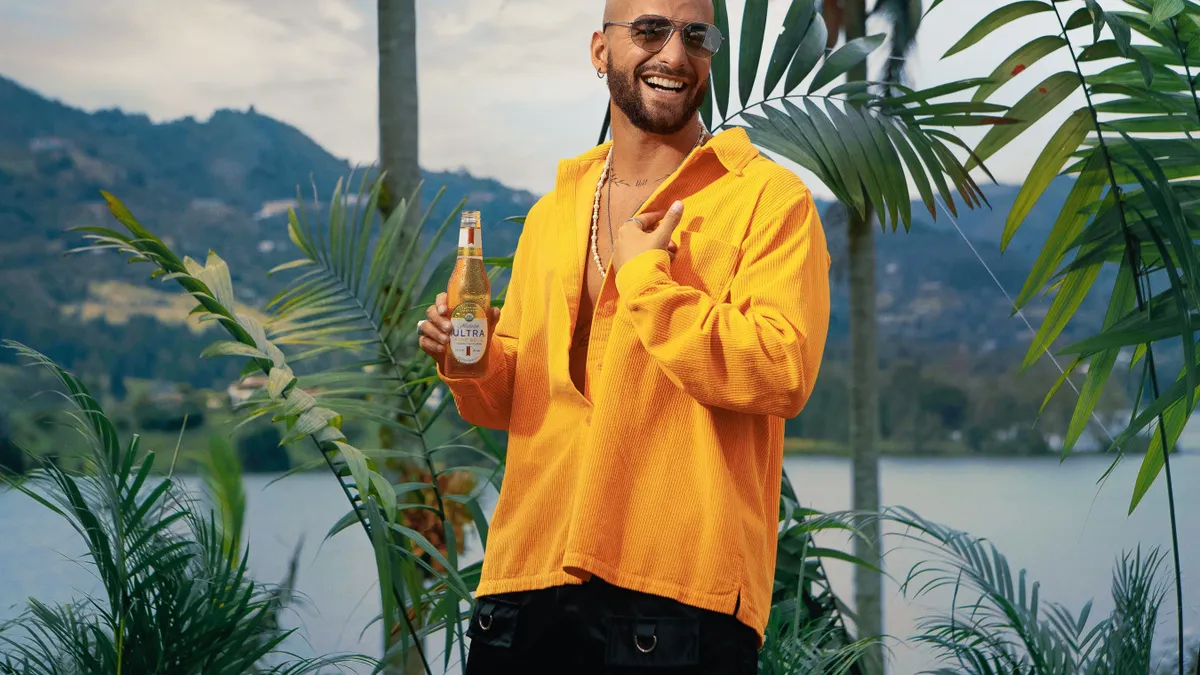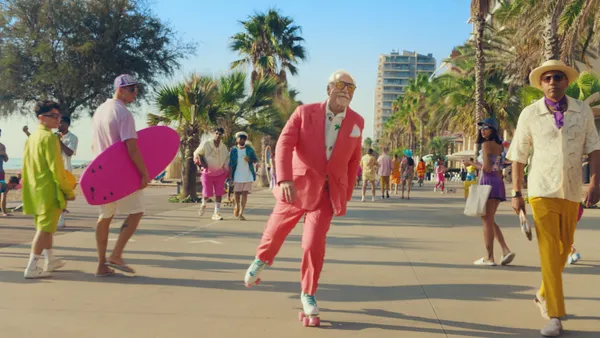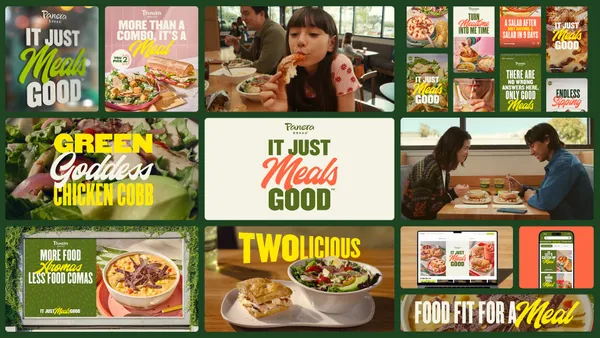Dive Brief:
- Michelob Ultra Pure Gold is now brewed with 100% renewable electricity from solar power, per a press release. To mark the announcement, the certified-organic lager teamed with Colombian musician Maluma on a new song, "Rumba (Puro Oro Anthem)."
- The song is billed as the first to feature the sounds of the sun, and is available on Spotify. An accompanying video will debut on April 22, which is Earth Day, on Maluma's YouTube channel, and the brand and musician will give away the song on gold vinyl records to fans 21 and older via social media.
- The announcement and collaboration build on parent company Anheuser-Busch's commitment to putting $100 million toward sustainability efforts as part of a broader two-year, $1 billion investment plan.
Dive Insight:
Michelob Ultra Pure Gold's celebration of a sustainability milestone with its Maluma collaboration ties together several marketing trends. By connecting pop culture to an environmentally friendly action, the AB InBev brand can promote its sustainability efforts in an authentic way that will help it engage with green consumers.
The effort comes as Michelob Ultra's parent continues to leverage its stable of brands to support company-wide sustainability goals. Previously, sister brand Budweiser used St. Patrick's Day to spotlight industry-wide "green" initiatives, paying for Renewable Energy Certificates instead of dyeing beer green, as it has in the past. Efforts like these use the company's marketing muscle to promote sustainability in a way that could help it avoid claims of green-washing by critics.
Teaming with Maluma allows Michelob Ultra to connect with the musician's global fan base; he has more than 31 million monthly listeners on Spotify. Over the past few years, brands including Oreo and Lay's have partnered with popular musicians on original songs that align with their campaigns, which can yield quantifiable results when efforts are perceived as authentic by younger consumers.
Anheuser-Busch this month announced plans to invest $100 million in a sustainability push that takes barley after it is used to make beer and repurposes it to be incorporated into food and other beverages, according to Marketing Dive sister publication Food Dive.















